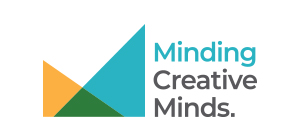8 Tips for Writing Applications
Juley-Ann Collins
1. Ensure your values align with the funder before applying.
Which artists and organisations do you like and admire? Find out where they got funding from or whom they funded. Then, consider going down that route.
Define your values as a creative professional. Do these align with certain venues, collectives, or funders? Ensure that your values align with the funders before applying. The guidelines of a particular fund will cite its purpose, objectives, and values. This is what you want to be aligned with. Don’t apply if they don’t match.
Be honest with yourself re. your values and skillset. These are different to other applicants’, which is why the right fit is important.
2. Build your personal library as your go-to for funding applications.
Having this library ready in a folder on your Desktop will save you time. Regularly feed in and update it. It should include:
– Up-to-date CVs; different versions – no more than 2 pages each.
– Your biography – have different versions.
– Headshot
– Images/videos/soundfiles capturing what you’ve worked on.
– Letters of support from partners outlining their relationship with you and details of partnerships.
3. Treat your application like a first date.
Don’t assume anyone knows who you are or what you’ve worked on when writing your application.
4. Your budget is your shopping list to get this project over the line.
Your budget must include every single thing that you need. If it’s not listed, you can’t do it.
Be specific, e.g., outline how many artists you need and for how many days/weeks you need them for.
Ensure you include:
– Any research/development work.
– Whether different people are needed for different dates on a tour.
– Any additional financial support from another funder.
– Marketing and PR costs.
– A contingency pot. This is your protected pot of money for unforeseeable circumstances.
– A breakdown of annual insurance into the days, months, or years relevant to your project.
– Benefit in kind. This is something that doesn’t come to you in funds but does have a monetary value, e.g., someone offering use of their venue for free or a mentor giving you half of their time for free. Your WiFi bills are included here too, as well as your work-from-home electrical costs.
No one budget will be the same.
5. When in doubt, call a friend to talk it out.
Get any issue out of your head and bounce it off someone. Your network is always bigger than you think.
6. Panelists are looking to eliminate applicants.
Before submitting, check you have all of the documents that you’ve been asked for. Make sure everything is as clear as possible on your application. Don’t add anything unless it’s asked for, e.g., only submit hyperlinks if you’re asked for them. Panelists are looking for a reason to eliminate you. Don’t give them any.
7. Tell yourself you’ll submit 48 hours before the deadline.
You never know what’s going to happen; what could crop up, e.g., waiting for supporting documents commonly causes delays.
8. Read your application out loud before submitting.
This will ensure that what you’ve written is clear and easy to understand for the panelist.
